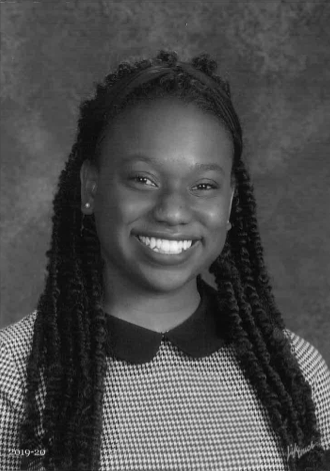Erica Hicks was fifteen years old when she first became involved with the NYSP, not as a camper, but as avolunteer. Having grown up in Cleveland’s Lee-Harvard neighborhood, Hicks had several family connections to the program - it was actually her best friend who invited her to join in the first place. “Her mom was working as an art teacher at the time,” Hicks recalls, “...so I would go help her mother out, I would teach art classes five times a week...and then I decided that I wanted to be a camper.”
Just two years later, Hicks was volunteering again - this time as an administrative assistant. This time she worked with her own mother in the cafeteria and in the office, taking care of paperwork and scheduling. “[My mom] would be on the phone with any concerned parents...she was also head of the cafeteria, and worked for the afterschool program,” Hicks looks thoughtful as she remembers the long list of responsibilities her mother held at camp. “Oh, she had a classroom, so she would teach lessons to the students in the afternoon.”
As an administrative assistant, Hicks took over in the office when her mother went to aftercare. While she spent most of her time answering phones, she also learned how to build relationships with the campers who passed through her door. “Most of the time, the kids that come to the office are the ones that have given the most trouble, and they just need a time out...” Hicks said. “I got to interact with those children a lot. And from that, I've just learned that to have a positive impact on them, you have to understand where they're coming from. You have to build that relationship, and you have to show them that you care.”
Many of the lessons Hicks learned at NYSP came from her own mother. She remembers one camper, who had recently lost a parent, came to camp with a lot of anger. According to Hicks, her mother didn’t reprimand the young girl for her attitude, or get angry with her for being disruptive - instead, she dealt with the behavior in a positive way.
“She took a step back and asked: ‘What's going on today? How can we help you? Is there anything you want to talk about? What's bothering you? Let's talk about that first,’” Hicks explains. “That made her feel comfortable. That made her feel happy, being able to share her problems with them. She was able to let go of that anger, and then they could touch on those behaviors that are not okay.”
Hicks knew what it was like to be cared for by the rest of the NYSP staff too - after all, in between volunteering, she had been a camper herself. As a camper, Hicks became especially involved in track and field. At that point she had played basketball before, but never thought that running would become a part of her life. “Everyone kept saying you should run track, I really didn’t want to,” Hicks says. “But then I started practicing with Coach Bill Harris.”
Coach Harris worked with Hicks, helping her with sprints and coming out of the blocks. The next year, she began running track at Trinity High School in Garfield Heights. She ran short sprints and relays, and eventually attracted the attention of college scouts. After high school, Hicks received an athletic scholarship to attend Walsh University and graduated with a Bachelor’s degree in Early Childhood Education. In 2017, Hicks began teaching. She currently teaches 4th graders at Our Lady of Peace in Canton, and, inspired by NYSP, is preparing to run her own summer program there.
“Everything I've learned from Coach, parents, everything I've learned from the office, I've applied to this camp that I'm working this summer at Our Lady of Peace,” she says. “NYSP played a key role in teaching me management skills and how to interact professionally when handling difficult situations. NYSP will be something that I take with me forever.”
Even though she will no longer work at NYSP, Hicks is grateful for the lifelong relationships she made there. She credits NYSP with teaching her not only how to run track, connect with kids, and manage tricky work situations, but also to believe in herself. “That was something I never saw myself doing,” Hicks laughs, looking wistful as she looks back on her days at camp. “Sometimes all these kids just need someone to believe in them, someone to trust in them, someone to push them. That’s what I got.”


